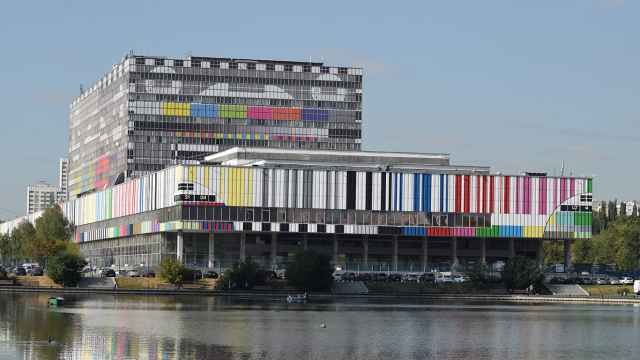The Federal Penitentiary Service has drafted proposals allowing teenage offenders to stay in juvenile correctional facilities if their behavior improves, a news report said Wednesday.
Under the current law teenage offenders are transferred to adult penal colonies when they reach the age of 19, but if the amendment is accepted the cut off point will be extended to 25, Kommersant reported.
The aim is to give young offenders an incentive to reform their character, as well as preventing them from interacting with hardened criminals, which damages their re-eduction, a prison source said.
Young offenders who are dropped into adult colonies try to assert themselves by acting like experienced criminals, which lead to them breaking rules and being punished, the source added.
Conditions inside correctional facilities will be gradually improved along the lines of the Swiss model. Cells will be equipped with refrigerators and televisions and won't host more than four people. Inmates will also be allowed to socialize in dining rooms.
Other changes to the regime include having social psychologists work with the inmates, and hiring Swiss experts to train staff.
The service said that it's proposals are being studied by the Justice Ministry.
The proposals form part of wider plans to redevelop the penal system by 2020 by remodeling correctional facilities and reducing their number from 46 to 33.
So far only five correctional facilities have been remodeled and it is not known how much of the Federal Budget has been made available for the plan.
Valery Borshchev, chairman of the Moscow Public Monitoring Commission said diverting young offenders from adult penal colonies could reduce recidivism. "Adult colonies break people with unstable psyches; people change and break away from society," she said.
He said, however, that reducing the number of facilities could have a negative effect, because it could lead to overcrowding in the facilities that remain open, which reduces the likelihood of offenders being successfully re-educated.
A Message from The Moscow Times:
Dear readers,
We are facing unprecedented challenges. Russia's Prosecutor General's Office has designated The Moscow Times as an "undesirable" organization, criminalizing our work and putting our staff at risk of prosecution. This follows our earlier unjust labeling as a "foreign agent."
These actions are direct attempts to silence independent journalism in Russia. The authorities claim our work "discredits the decisions of the Russian leadership." We see things differently: we strive to provide accurate, unbiased reporting on Russia.
We, the journalists of The Moscow Times, refuse to be silenced. But to continue our work, we need your help.
Your support, no matter how small, makes a world of difference. If you can, please support us monthly starting from just $2. It's quick to set up, and every contribution makes a significant impact.
By supporting The Moscow Times, you're defending open, independent journalism in the face of repression. Thank you for standing with us.
Remind me later.





